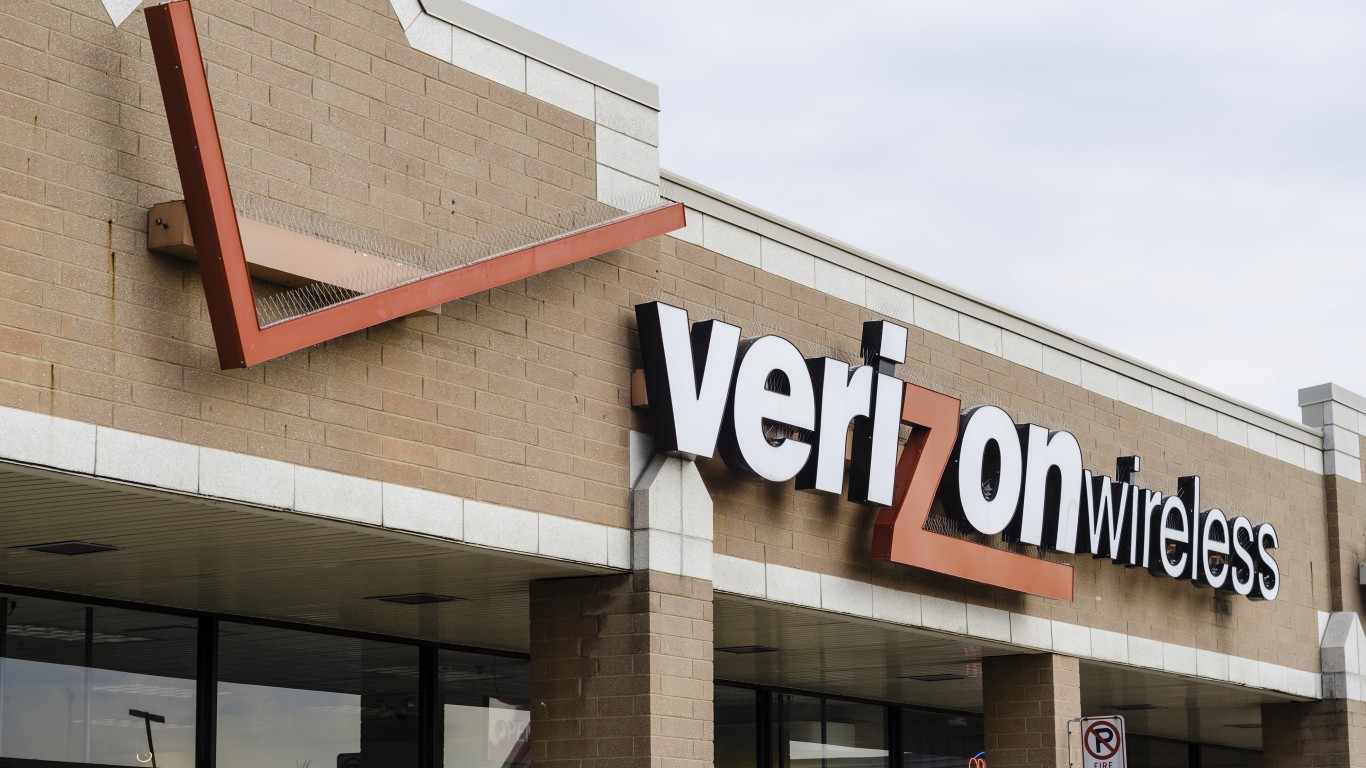
The United States may block the sales of products from Chinese tech companies ZTE and Huawei. According to Reuters:
President Donald Trump is considering an executive order in the new year to declare a national emergency that would bar U.S. companies from using telecommunications equipment made by China’s Huawei and ZTE, three sources familiar with the situation told Reuters.
It would be the latest step by the Trump administration to cut Huawei Technologies Cos Ltd [HWT.UL] and ZTE Corp, two of China’s biggest network equipment companies, out of the U.S. market. The United States alleges that the two companies work at the behest of the Chinese government and that their equipment could be used to spy on Americans.
Verizon Communications Inc. (NYSE: VZ) told customers that they may lose access to Disney and ESPN channels. According to The Wall Street Journal:
Verizon Communications Inc. warned that Fios TV customers may lose access to ESPN and Disney Channel among other networks if it can’t reach a new carriage agreement with the Walt Disney Co., the latest fight between media companies over carrying and paying for content.
Verizon sent an e-mail to Fios customers Wednesday afternoon after Disney began running ads that Disney-owned networks may no longer be available to Fios subscribers.
Two movies topped the box office in 2018. According to The Wall Street Journal:
At the current pace, the U.S. and Canadian box office will end the year with returns of around $11.8 billion, according to executives and analysts, compared with $11.1 billion in 2017.
The current record, $11.4 billion, was set in 2016.
In a sign of how top-heavy the market has become, three Walt Disney Co. movies—“Black Panther,” “Avengers: Infinity War” and “The Incredibles 2”—accounted for nearly $2 billion in domestic grosses. At $700 million, “Black Panther” is now the third-highest-grossing movie in U.S. history, with “Infinity War” at No. 4 and “Incredibles 2” at No. 9.
U.S. shale production is undermining the sale of crude by Middle East nations. According to Bloomberg:
The U.S. oil industry is delivering a one-two punch to Middle East producers already reeling from a collapse in prices.
A tussle is playing out in the market for so-called light oils, which have a lower sulfur content and are less dense than heavier varieties. When processed, these grades typically yield a higher amount of fuels like gasoline and naphtha. And now, American supplies are weighing on prices for such crudes as well as fuels made from them.
Light oil pumped in U.S. shale fields is increasingly making its way to Asia, undercutting sales by the likes of Saudi Arabia. Additionally, America is exporting a record amount of refined fuel, contributing to a global glut in gasoline and naphtha. That’s hurting some of the biggest members of the Organization of Petroleum Exporting Countries as they prepare to curb crude output in a bid to stabilize the market.
Crude oil posted a huge rebound from recent low levels. According to CNBC:
Oil surged on Wednesday, posting its strongest daily gain in more than two years in a partial rebound from steep losses that pushed crude benchmarks to lows not seen since 2017.
Both U.S. and Brent crude rose about 8 percent, their largest one-day increase since Nov. 30, 2016, when OPEC signed a landmark agreement to cut production. It was unclear whether follow-through buying would push prices higher again once trading desks are more fully staffed after the new year begins.
Retailers chalked up their best sales improvement in six years. According to CNN Business:
Holiday sales grew at their fastest pace in six years, buoyed by rising wages and a drop in gas prices.
Retail spending from November 1 through December 24 increased 5.1% from a year ago, according to Mastercard SpendingPulse. Shoppers spent more than $850 billion during the holidays.
Unfazed by volatility on Wall Street, consumers flooded into stores and bought clothes and home decor online. Gas prices have dropped by more than 20 cents a gallon over the past month, giving shoppers extra cash for the holidays.
Take Charge of Your Retirement: Find the Right Financial Advisor For You in Minutes (Sponsor)
Retirement planning doesn’t have to feel overwhelming. The key is finding professional guidance—and we’ve made it easier than ever for you to connect with the right financial advisor for your unique needs.
Here’s how it works:
1️ Answer a Few Simple Questions
Tell us a bit about your goals and preferences—it only takes a few minutes!
2️ Get Your Top Advisor Matches
This tool matches you with qualified advisors who specialize in helping people like you achieve financial success.
3️ Choose Your Best Fit
Review their profiles, schedule an introductory meeting, and select the advisor who feels right for you.
Why wait? Start building the retirement you’ve always dreamed of. Click here to get started today!
Thank you for reading! Have some feedback for us?
Contact the 24/7 Wall St. editorial team.




